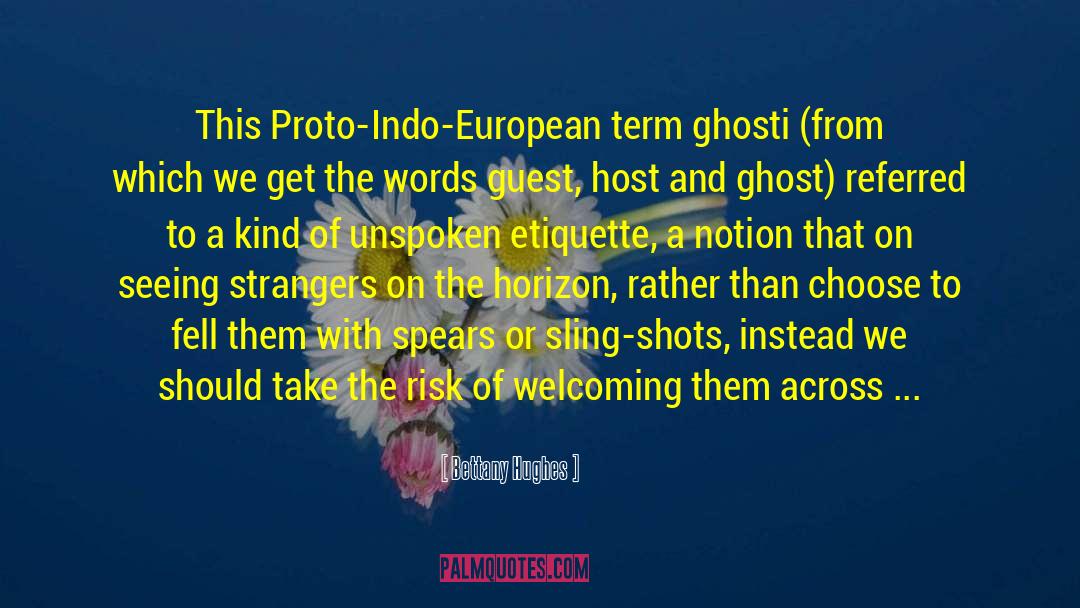Bettany Hughes Famous Quotes
Reading Bettany Hughes quotes, download and share images of famous quotes by Bettany Hughes. Righ click to see or save pictures of Bettany Hughes quotes that you can use as your wallpaper for free.
Coming as a kind of pleasure-package with her parents and sisters, as a girl Theodora performed acrobatic tricks and erotic dances in and around the hippodrome – part of the fringe of shows, spectacles and penny theatricals that accompanied the games. It was said by contemporary chroniclers that one of Theodora's most popular turns was a re-enactment of the story of Leda (the mother of Helen of Troy) and the Swan (Zeus in disguise). The Greek myth went that Zeus was so enraptured with Queen Leda when he espied her bathing by the banks of the River Eurotas that he turned himself into a swan so that he could ravish the Spartan Queen. Theodora, as Leda, would leave a trail of grain up on to (some said into) her body, which the 'swan' (in Constantinople in fact a goose) then eagerly consumed. The Empress's detractors delighted in memorialising the fact that Theodora's services were eagerly sought out for anal intercourse, as both an active and a passive partner. As a child and as an adolescent woman Theodora would have been considered dirt, but she was, physically, right at the heart of human affairs in a burgeoning city in interesting times.
Theodora was also, obviously, wildly attractive. Born in either Cyprus or Syria, as a teenager – already the mother of a young girl and with a history of abortions – she left Constantinople as the companion of a Syrian official, the governor of Libya Pentapolis. The two travelled to North Africa, where, after four years of maltre

So at that time of day when the early sun still rings haloes on human heads, Socrates is walking through the Agora to his judgement day.

For the Spartans, it wasn't walls or magnificent public buildings that made a city; it was their own ideals. In essence, Sparta was a city of the head and the heart. And it existed in its purest form in the disciplined march of a hoplite phalanx on their way to war!
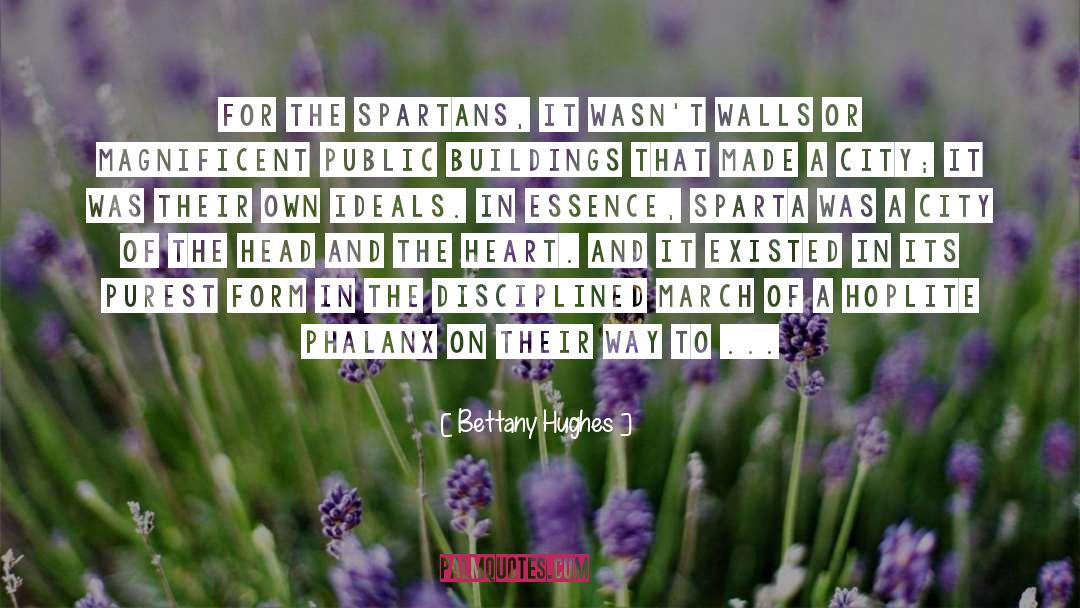
Sometimes what-if fantasies are useful. Imagine that the entirety of Western civilisation's coding for computer systems or prints of all films ever made or all copies of Shakespeare and the Bible and the Qur'an were encrypted and held on one tablet device. And if that tablet was lost, stolen, burnt or corrupted, then our knowledge, use and understanding of that content, those words and ideas, would be gone for ever – only, perhaps, lingering in the minds of a very few men of memory whose job it had been to keep ideas alive. This little thought-experiment can help us to comprehend the totemic power of manuscripts. This is the great weight of responsibility for the past, the present and the future that the manuscripts of Constantinople carried. Much of our global cultural heritage – philosophies, dramas, epic poems – survive only because they were preserved in the city's libraries and scriptoria. Just as Alexandria and Pergamon too had amassed vast libraries, Constantinople understood that a physical accumulation of knowledge worked as a lode-stone – drawing in respect, talent and sheer awe. These texts contained both the possibilities and the fact of empire and had a quasi-magical status. This was a time when the written word was considered so potent – and so precious – that documents were thought to be objects with spiritual significance. (...)
It was in Constantinople that the book review was invented. Scholars seem to have had access to books within a proto-lendi
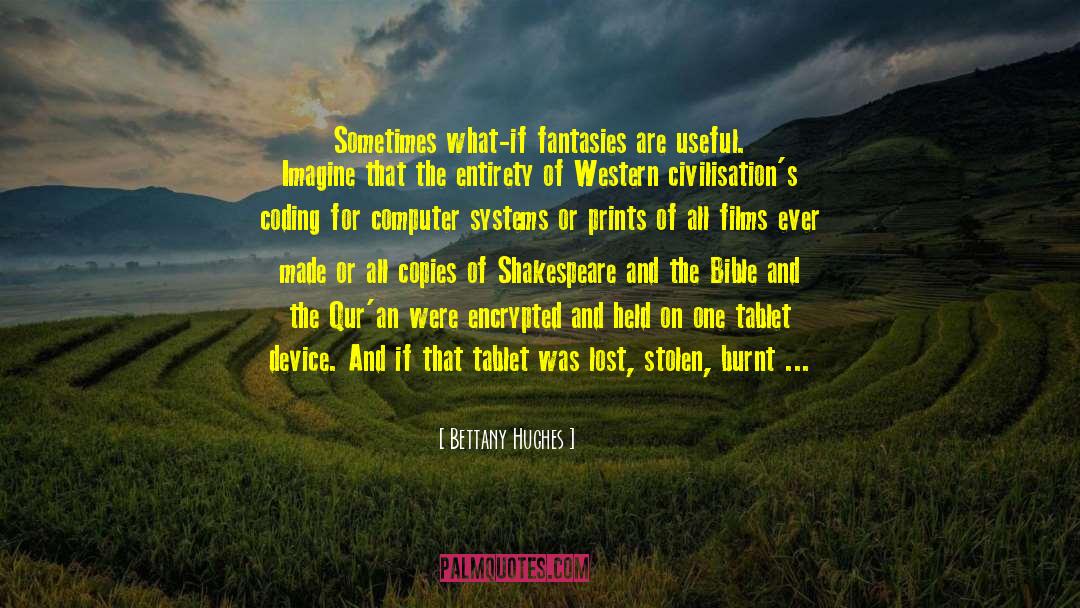
The stories abounded, both recounting these cross-continental journeys and perhaps inspiring them – how Hellenic Jason gathered his Argonauts together (including Augeas, whose vast stables Herakles would be forced to clean) for adventure and profit, how he stopped off along the Bosphorus and discovered the land of the rising sun before other Greek heroes headed to Asia in search of Helen, Troy and glory. In the Homeric epics we hear of Jason travelling east where he tangles with Medea of Colchis, her aunt Circe and the feisty Amazon tribe. Lured by the promise of gold (early and prodigious metalworking did indeed take place in the region – perhaps sparking the Greek idea that the East was 'rich in gold') and then detained by the potions and poisons of Princess Medea, Jason succeeded in penetrating the Caucasus – a land which, in the Greek mind, wept with both peril and promise. It was here that Prometheus was chained to a rock with iron rivets for daring to steal fire from the gods. Archaeology east of Istanbul demonstrates how myth grazes history.
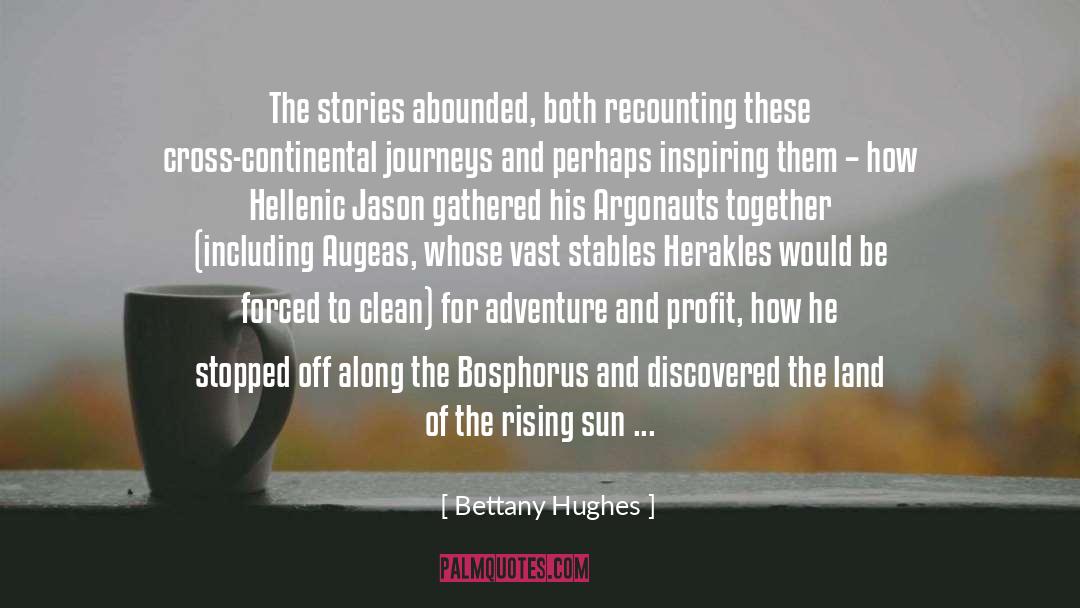
Peter Jones's is a vital public service. He reminds us that while we shouldn't live in the past, we are wiser and stronger when we live with it.
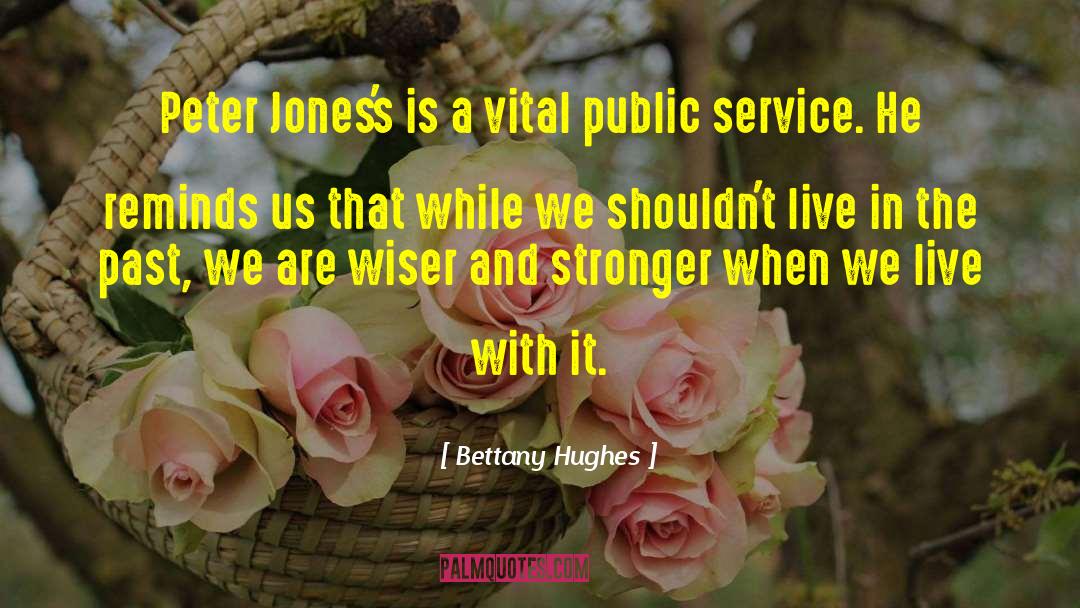
This Proto-Indo-European term ghosti (from which we get the words guest, host and ghost) referred to a kind of unspoken etiquette, a notion that on seeing strangers on the horizon, rather than choose to fell them with spears or sling-shots, instead we should take the risk of welcoming them across our threshold – on the chance that they might bring new notions, new goods, fresh blood with them.
Over time this word-idea evolved into the Greek xenia – ritualised guest–host friendship, an understanding that stitched together the ancient Mediterranean and Near Eastern worlds.
